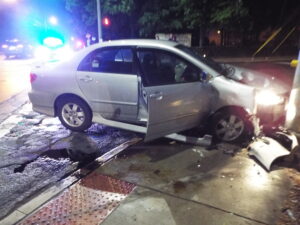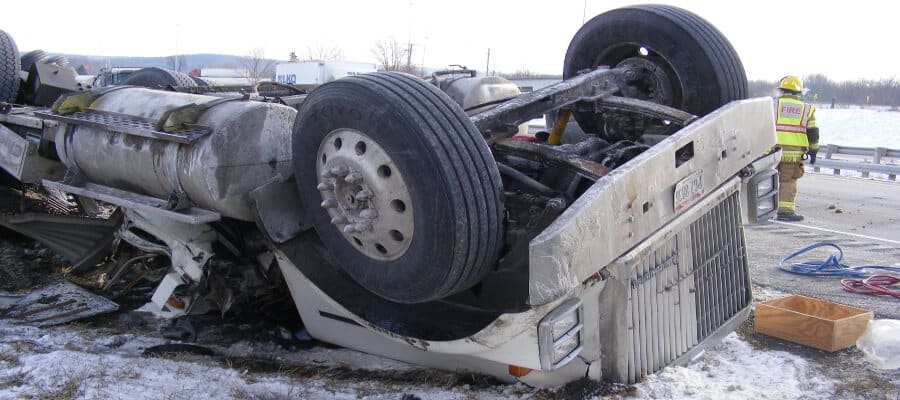 Though, these unexpected yet necessary expenditures for series of operations and for recuperation of victim can be covered though filing an injury claim as victims of the recent crash are entitled to file an injury claim against the at-fault driver with the help of an injury attorney or a law firm. Ryan Injury Lawyers is an Ohio based injury lawyer that represents victims of personal injury caused by car accidents, medical malpractice due to medical professional’s negligence, and even wrongful death against large companies, agencies and even individuals. We have 40 years of experience doing our service in this field and evidently successful with our civil litigations. Call our office now for free legal consultation.
Though, these unexpected yet necessary expenditures for series of operations and for recuperation of victim can be covered though filing an injury claim as victims of the recent crash are entitled to file an injury claim against the at-fault driver with the help of an injury attorney or a law firm. Ryan Injury Lawyers is an Ohio based injury lawyer that represents victims of personal injury caused by car accidents, medical malpractice due to medical professional’s negligence, and even wrongful death against large companies, agencies and even individuals. We have 40 years of experience doing our service in this field and evidently successful with our civil litigations. Call our office now for free legal consultation.
Common Forms of Head Injury
- Concussion is a form of traumatic brain injury (TBI) where can be acquired and is caused when there is a bump or blow to the head or the body that causes the head and brain to move rapidly and cause a fast movement of the brain, in the case of car crashes, this happens when head hits directly to hard surface of a car because of sudden brake or external impact.
-
- Unconsciousness, confusion, and dizziness
- Headache or tenderness felt in the head
- Temporary loss of memory
- Nauseous feeling or vomiting
- Slurred manner of speech
- Internal bleeding and swelling of sides of brain
- Fractures in skull
- Tenderness and headache
- Unconsciousness
- Headache and tenderness
- Nausea and vomiting
- Slow Cognition
- Numbness or itchy feeling in the bumped area
- Motor skills issues
Common Care Measures for a TBI Patient
Main causes of Traumatic Brain Injuries
These are the main causes of Traumatic Brain Injuries that contributed 95% to all cases of TBI in the last 5 years in US, susceptible ages for these causes are; newborns – four years old, ages 15 – 24 where working is rigorous, elder ages 60 above where falls and slips are numerous, and most common among male because of lifestyle:
- Vehicle related injuries or violent motions
- Falls
- Sports related Injuries
- Violence
Psychological and Cognitive Complications
- Consciousness – Patient’s responsiveness and mental activity may worsen in form of cases of least conscious state, vegetative state or in few worst case, coma or brain death.
- Altered cognitive, nervous and communication process and function – Patient may as well show an decline in performing daily tasks and common human features such as speech and reasoning. Memory loss, learning, memorizing (and its constituting abilities such as organizing, planning and multitasking) as well are evidently declining on some cases of TBI. Communication problems are seemed to be common and not something to be surprised when exhibited by someone who suffers TBI, may it be in writing or vocal messages as their nervous functions are damaged by a certain cause.
- Behavioral Changes – Difficulty in controlling emotions and habits are as well observed in a TBI patient, they show lessen self control and awareness, sudden emotional burstouts and oftentimes show risky behavior.
- Decline in sense – Widen blind spots, difficulty in smelling and distinguishing tastes, random audio distortion and other impairment of senses and hand – eye coordination are complications that could possibly developed in most TBI patients.
How are Traumatic Brain Injury patients are treated?
Brain injury can have a variety of effects on the individual, including mental and physical impairment. Rehabilitation may be beneficial to help improve your ability to function at home and in your community while treating any underlying psychological or physiological problems caused by brain damage. It also provides social support for both patients with TBIs as well as their families who are going through similar experiences during recovery; it helps provide acceptance of changes that happen over time following an accident such as losing abilities or experiencing other adverse side-effects from treatment plans. The reasons why you might need rehabilitation post traumatic head injury could involve improving one’s self-efficacy due to lower levels of independence which is typically seen after these injuries occur. The medical rehabilitation process helps with many of the complications that can arise from TBI and other injuries, such as blood clots, pain pressure ulcers or bedsores. It also aids in preventing future related health problems by treating those who have been diagnosed with a TBI to prevent them from getting worse after they are discharged home.Types of Brain Damage Sustained in a Car Accident
When involved in a car accident, there are countless possibilities on how victims could sustain their injuries. Range of injuries include cuts, broken bones, bruises, burns, possibility of amputation, and even head and neck injuries which could lead to either brain damage or spinal cord issues. In this blog, we are going to talk about the array of possibilities what forms of brain damage a victim in a car accident could sustain as in the field of medicine, brain injuries are deemed to have the highest fatality recorded in terms of damage sustained in a car accident, one of the most life-changing injury that one could have from one event and we are about to shed light on why drivers should take premeasures when driving due to taking these adversities.Diffuse axonal injury
Diffuse axonal injury is one of the brain injuries sustained from car accidents that happens when the connection between the cerebrum’s nerve fibers and the spinal cord are torn due to the trauma from external violent force such as vehicle crash which cause a person’s brain to violently shift forward and backward or even rotate. This injury could cause cognitive issues and even death.Hematoma and hemorrhage
These two are in same category of brain damage where they are both dangerous and fatal and are likely to be sustained from car accidents. This specific injury involve blood clot or blood gathering inside the skull and putting pressure on the cerebrum which damages it and possible cut off of blood and air supply. This affects victim’s cognitive function or permanent damage to the cerebrum.
